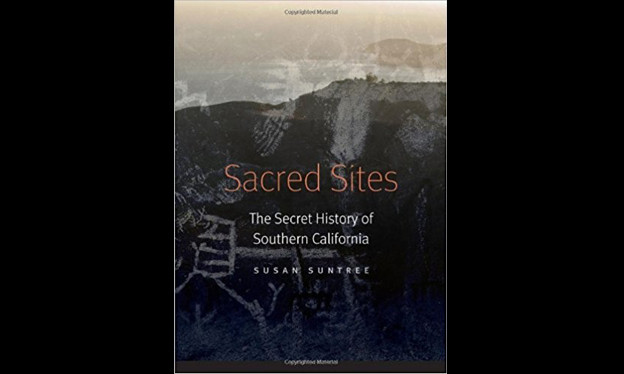Susan Suntree: from 'Sacred Sites, The Secret History of Southern California' with a foreword by Gary Snyder

Book Two: The Origins of Southern California: Indigenous Myths and Songs
Part 1: Universe, World, People
First
there is
quiet.
Only solitude
like an empty house (no house)
Only
Kvish Atakvish
Kvish: Vacant
Atakvish: Empty
These two are man and woman, brother and sister.
Then Kvish Atakvish
becomes
Omai Yamai
Omai: Not Alive
Yamai: Not in Existence
When these two discover themselves,
they talk with one another:
Brother, who are you?
Sister, who are you?
(Desire stirs the man,
so he never again calls her sister.)
She asks again: Who are you?
He says:
Kvish
Kvish
Kvish
I am Empty
Empty
Empty
He blows out his spirit breath: Hannnn!
She answers:
Atakvish
Atakvish
Atakvish
I am Vacant
Vacant
Vacant
She blows out her spirit breath: Hannnn!
She asks again: Who are you?
He answers:
Omai
Omai
Omai
I am Not Alive
Not Alive
Not Alive
He blows out his spirit breath: Hannnn!
He asks again: Who are you?
She answers:
Yamai
Yamai
Yamai
I am Not in Existence
Not in Existence
Not in Existence
She blows out her spirit breath: Hannnn!
Not Alive-Not in Existence
becomes
Whaikut Piwkut Harurai Chatuta
Whaikut Piwkut: Pale Gray The Milky Way
Harurai Chatutai: Changing Descending Deep into the Heart
These two become
Tukmit: Dark Sky Tomaiyowit: Earth.
(Clearly it is not
male and female
sky and earth,
but of another nature.)
These two:
Tukmit Tomaiyowit Dark Sky Earth
come forth from what came before
not as children
but as themselves:
a Continuing Being.
It is very dark
without stars, sun, moon.
The woman lies with her feet to the north.
The man sits by her right side.
In the darkness
they talk with one another again,
and what they name
they become:
The First World.
[NOTE and FOREWORD. The full range of Suntree’s work (University of Nebraska Press, 2010), not shown here, is in fact an epic including both indigenous and scientific/geological views of myth & history in an unprecedented way. This is no small accomplishment — in fact it is a really great one — to which attention is called here and here. Of her book’s major status, unless we miss it, Gary Snyder writes by way of foreword:
“A work of great spirit accomplished with patience and vision, Susan Suntree’s epic poem is a lovely weaving of science and myth. It is a work that sings. Like all good stories it reads like the storyteller is right there, speaking to the reader, shaping the universe one song at a time.
Suntree’s book is about impermanence. From the very beginning, the landscape known as Southern California has reshaped itself dramatically and often. Learning how a place comes into being acquaints us with forces of life that are large and intimately interconnected. For the indigenous people, the creation and transformation of the world is an account of the First People. In this way of looking at it, the land is alive and working out its own story.
Conditions are always changing. Something always upsets the balance. Suntree recounts a pivotal moment in one of the creation myths when Frog Woman and her cronies curse the great leader Wiyot, bringing death into the world. The First People respond by sitting together and talking things over until they find ways to accommodate changed conditions and rebalance the world. The common good is at stake. Everybody participates: trees, animals, weather, and eventually the human beings. So this is a book about maintaining balance. We can only do this by carefully listening to our nonhuman neighbors and relatives.
But people resist letting the world in. We tend to think of the natural, the sacred, the wild as happening outside our neighborhoods and far away. Suntree brings us home. Every day in Los Angeles, tectonic plates, weather blown in from thousands of miles away, and the work of Raven and Coyote are always at play. Don’t miss it!
Suntree’s many years of writing, performing, and activism inform her work. So it is in part her cumulative wisdom and insight that makes this book so strong. Here we have a model for a much larger project: indigenous and Western poets and scientists swapping stories, singing their best songs around the same fire, working hard to keep the world in balance. That is going to take every song we’ve got.”]
Poems and poetics